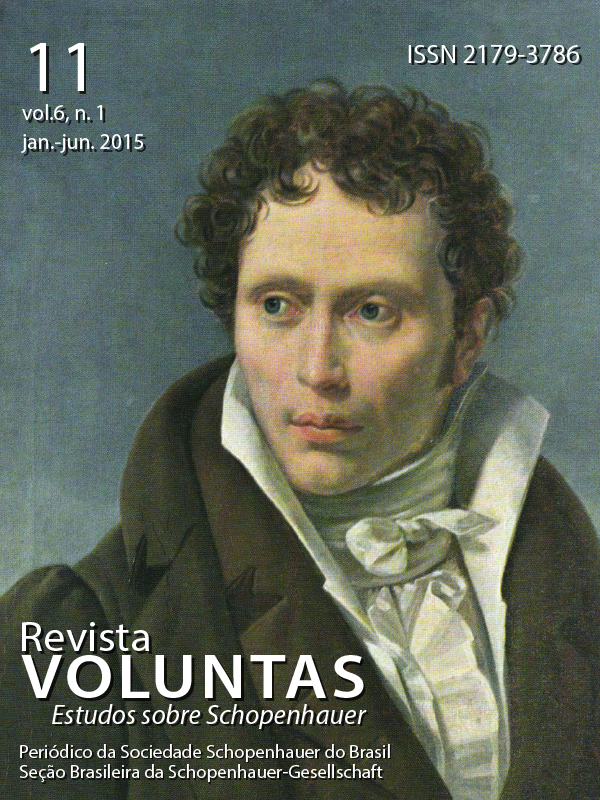The sources of the theory of sublimation of Freud in the philosophy of Schopenhauer
DOI:
https://doi.org/10.5902/2179378633808Keywords:
Art, Aesthetic Contemplation, Genius, SublimationAbstract
In agreement with the vision of world of Schopenhauer, the human being is characterized by being dominated by an essential lack, motivated by the eternal dissatisfaction of their desires and inclinations. That situation motivates in the human personality the displeasure for the existence, the development of terrible and violent feelings, shortly appeased when the man gets to supply that existential lack, the ones which, after a happy spirit peace, they surface again in the human life with maxim intensity. Schopenhauer elaborates his referred theory of the aesthetic contemplation, considering that the individual that is devoted to the artistic creation and to the act of to philosophize becomes indeed capable to appease for precious moments the desire of his unhappiness. Such perspective influences Freud when this develops the theory of the sublimation, and this is characterized by overcoming in some steps Schopenhauer's perspective, for the fact that Freud considers that not just in the art, but in any other activity, of intellectual character or even of labor, the human being would channel their voluptuous sexual pulses (that would be one in Schopenhauer's theory more of the expressions of the desire imposed by the human will) through the accomplishment of enterprises transforming that vital energy disperses through the sexual action in a concrete productive impulse.
Downloads
References
FREUD, Sigmund. “Moral sexual ‘civilizada’ e doença nervosa moderna”. In: Vol. IX da Edição Standard das obras psicológicas completas de Sigmund Freud. Trad. de Maria Aparecida Moraes Rego. Rio de Janeiro: Imago, 1996, pp. 165-186.
HOBBES, Thomas. Leviatã ou Matéria, Forma e Poder de um Estado Eclesiástico e Civil. In: Vol. Hobbes, Col. Os Pensadores. Trad. de João Paulo Monteiro e Maria Beatriz N. da Silva. São Paulo: Nova Cultural, 1997.
KANT, Immanuel. Fundamentação da metafísica dos costumes. Trad. de Paulo Quintela. Lisboa: Edições 70, 2001.
SCHOPENHAUER, Arthur. Metafísica do belo. Trad. de Jair Barboza. São Paulo: Unesp, 2003.
SCHOPENHAUER, Arthur. O mundo como vontade e como representação. Trad. de Jair Barboza. São Paulo: Ed. UNESP, 2005.
SCHOPENHAUER, Arthur. Sobre o fundamento da moral. Trad. de Maria Lúcia Mello e Oliveira Cacciola. São Paulo: Martins Fontes, 2001.
Downloads
Published
How to Cite
Issue
Section
License
The submission of original manuscripts to this journal implies the transference, by the authors, of the copyrights for printed and digital publication. The copyrights of a published manuscript belong ultimately to the author, and only the copyright for its first publication is reserved to the journal. Authors may only use the same results in other publications explicitly indicating this journal as the medium of the original publication.
Licence
Attribution-NonCommercial-ShareAlike 4.0 International (CC BY-NC-SA 4.0) - This license lets others remix, tweak, and build upon your work non-commercially, as long as they credit you and license their new creations under the identical terms.






